By Rick VanSickle
It takes a village to build a wine industry, and that’s exactly what two Niagara wineries – one new, the other existing — plan to do.
The new Al Borgo Estate Winery, located between Zimmerman and Mountain Roads on top of the escarpment south of Beamsville, has already planted vines and just recently secured Town of Lincoln approval to build a “village” surrounded by 40 acres of vines that will include a community artisan marketplace, café, tasting room, retail space, winery and a central, 250-person capacity, multi-use community space which will evolve into an event space.
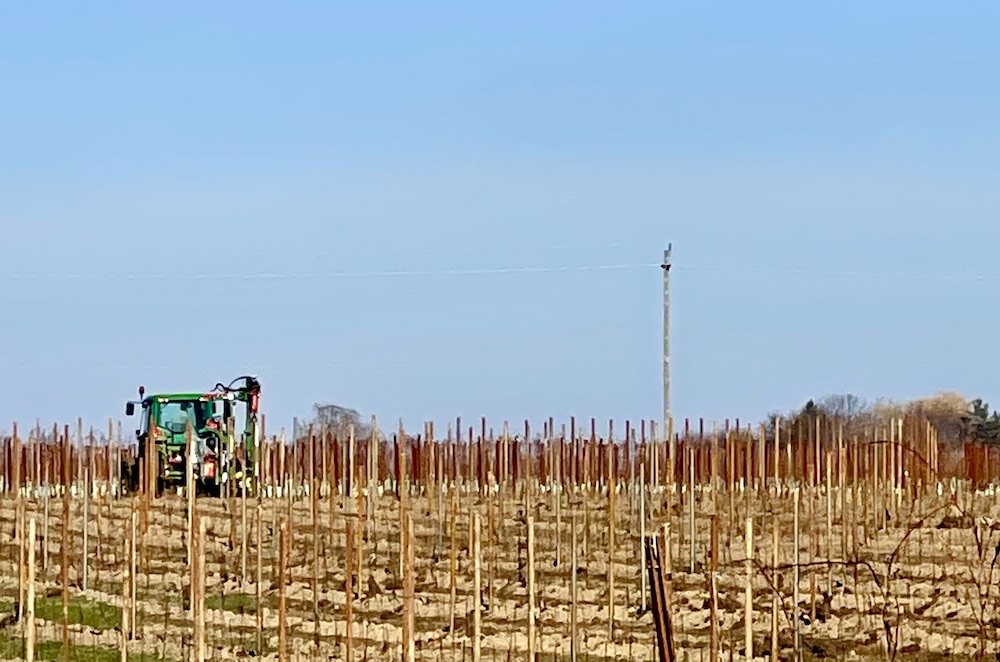
The plan also calls for much needed accommodations in the form of 10 high-end cabins fronting on Mountain Rd. and backing onto the wetland with pedestrian access to the winery complex.
The Borgo application was submitted to Lincoln in August and was recently given the green light by council. “The proposed development was approved by council, and they are now undertaking detailed design through the site plan process,” planner Allison Martin confirmed to Wines in Niagara.
All that is waiting before breaking ground on the winery is approval for the septic system needed for the property, which is under government of Ontario jurisdiction.
The other major project in Niagara with agritourism implications is a proposal from Pearl Morissette in Jordan to build a permanent outdoor dining pavilion and accommodation suites to allow guests to stay overnight either as part of their visit to the restaurant or as visitors to the area in need of overnight accommodations.
The application is awaiting minor alterations to the plan after questions from Lincoln councils and neighbours.
The Pearl Morissette plan was submitted to the Town of Lincoln in October and “in response to the feedback received from staff and the public, the applicant is currently in the process of revising their proposal,” said Martin. “Town staff anticipate that a recommendation report will be brought forward for council consideration in early 2023.”
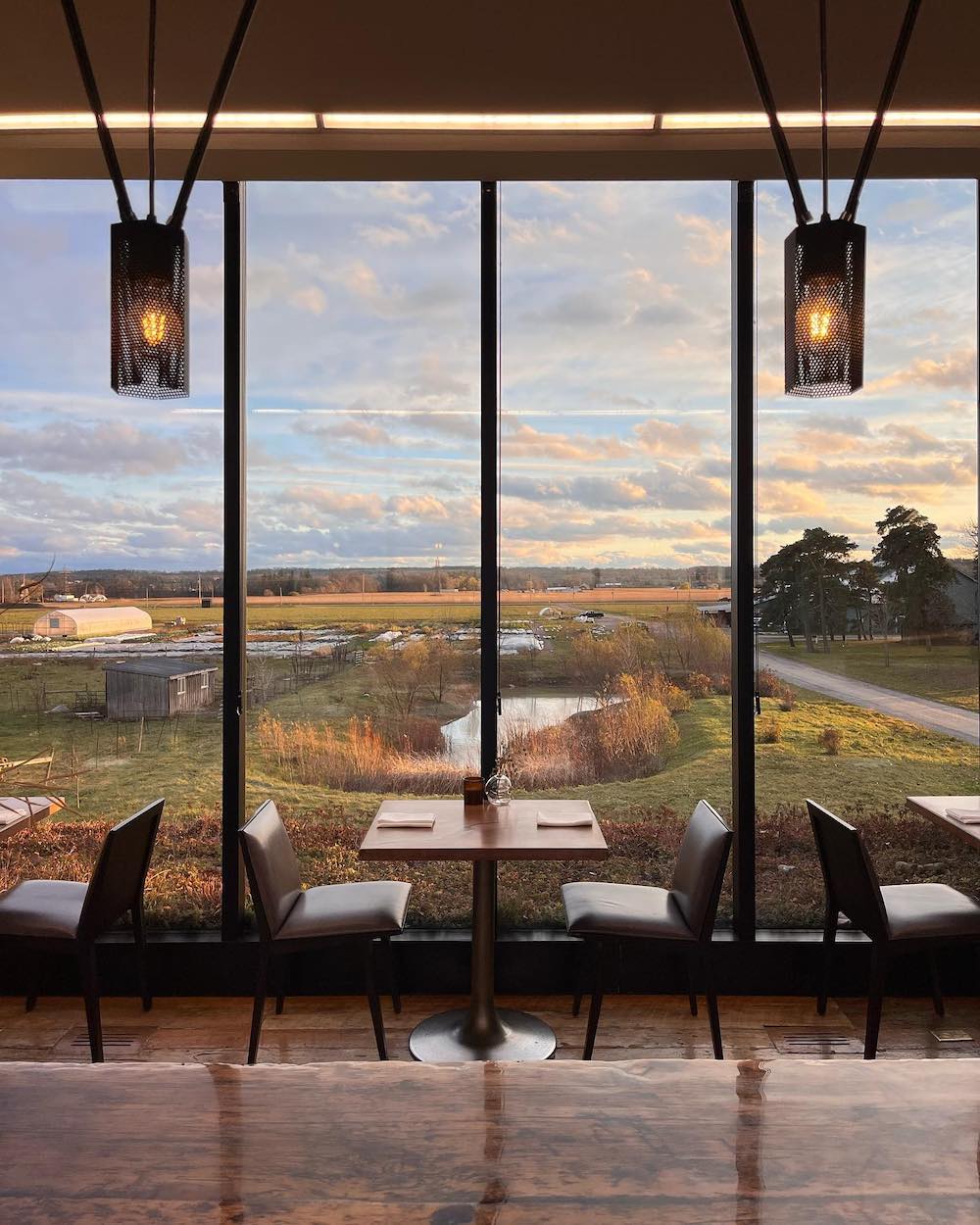
A spokesperson for Pearl Morissette told Wines in Niagara that the amendments will be similar to the original plan with changes focused on more efficiencies in the design to reduce the hardscape coverage and get as close as possible the 2% target for diversified use outside of agriculture, and also a change from staggered accommodation units to side by side and a few rows further back so that the peach orchard is still visible from the road.
Both these projects are being met with support from both the Ontario Craft Wineries (OCW) association and benchland neighbours.
“OCW is supportive of them,” Carolyn Hurst, chair of the association, told Wines in Niagara. “We do need more accommodations and agritourism investments in Niagara and the Lincoln Benchlands,” Hurst, co-owner of Westcott Vineyards with her husband Grant Westcott, added.
Vineland Estate winemaker and chair of the VQA Ontario board of directors, Brian Schmidt, said: “We know wine lovers are looking for more choices when they visit our Niagara benchlands. They want to stay longer than just an afternoon. We need to give them reasons to remain here longer and explore all our tourism options. I fully support and would always encourage anyone who is looking to build innovative and sustainable hospitality options for our little corner of the wine world.”
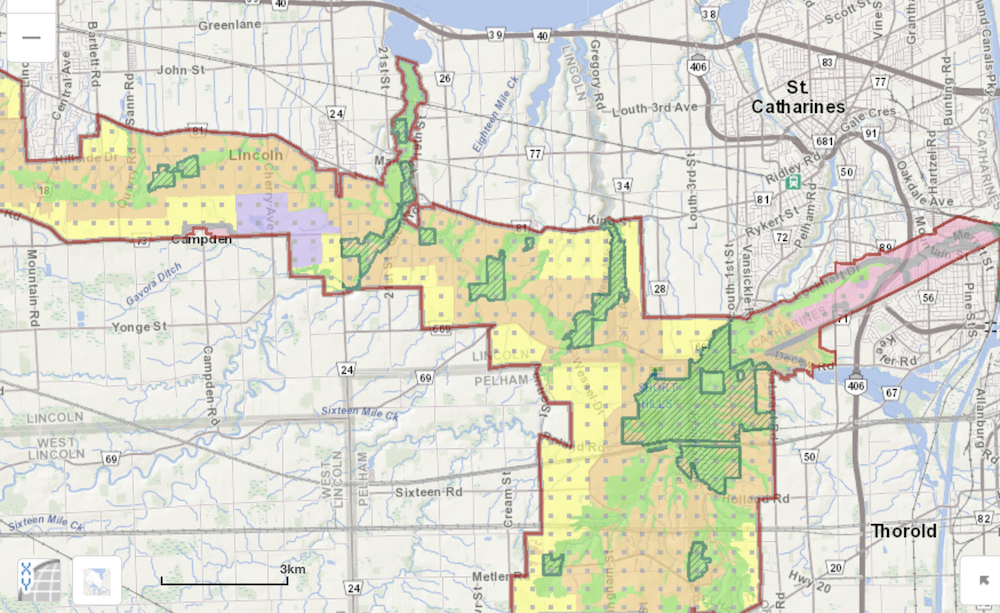
As is widely known, the biggest challenge in Lincoln is finding enough accommodations to keep visitors on the west side of the canal. There are very few options and wineries, especially those located in the protected Niagara Escarpment Commission zone, have insurmountable obstacles standing in their way. See this link to an interactive map of protected lands here. There is a smattering of B&Bs in the protected zones but limited multi-room facilities to accommodate the thousands of visitors who come to visit Lincoln wineries every year.
Both the projects mentioned here are outside of the protected zones. Let’s review them in more detail.
The Al Borgo Estate Winery


The Al Borgo “village,” which includes the vineyard, winery, 10 cabins for guests, and an artisan market hall, is an ambitious project from founders/owners Alessandro Spassiani and Joseph Panetta.
Spassiani is the owner of the Borgo Contract Seating company in Toronto and one of the founding partners of the Vieni Estates winery, located nearby on Fly Road.
The name Al Borgo is in reference to the Italian town where Spassiani grew up called Sora, which is in Lazio, in the province of Frosinone, about an hour southeast of Rome. Sora is the twin town with Vaughan, Ont., where Spassiani lives. “In Sora there is an older part of the town referred to by the locals as Borgo, meaning village,” explains Spassiani. ‘To the village’ is the literal translation of Al Borgo.
Spassiani is no stranger to Niagara. Even before his partnership in Vieni he owned a business called Woodrich Furniture Inc. on Dieppe Rd., which later moved to 131 Cushman Rd., in St. Catharines, before starting his contract seating business in Toronto. He plans to turn the Toronto company over to his son once the winery is in full operation.
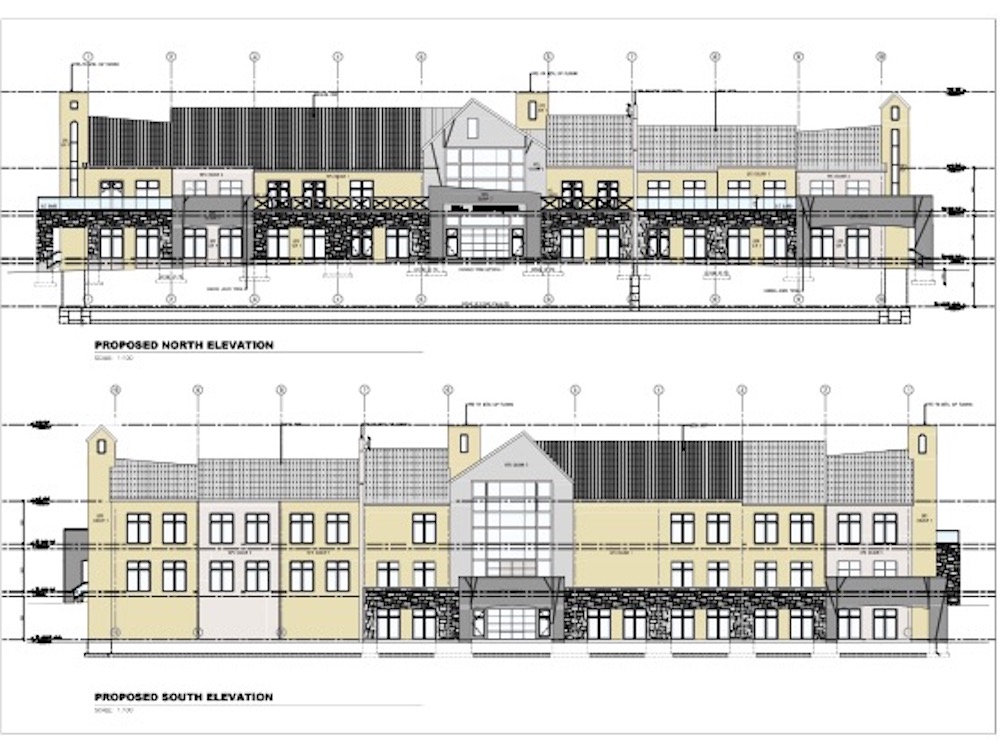
As Spassiani watched the Ontario wine industry grow he became more and more fascinated with the quality of wines being crafted in Niagara. His dream of owning his winery began 22 years ago even as he became a founding partner in Vieni.
“We have the climate and now so much innovation,” Spassiani told Wines in Niagara. “We can produce wines just as well as anywhere. There’s been major improvement in the quality.”
He bought the Zimmerman Road property, previously planted to soybeans and corn, three years ago and began planting 25,000 vines, mostly Pinot Noir, Vidal, Baco Noir, Pinot Grigio and three previously unplanted varieties in Canada that are virus resistant — Sauvignon Rytos, Soreli FPS and Cabernet Volos FPS.
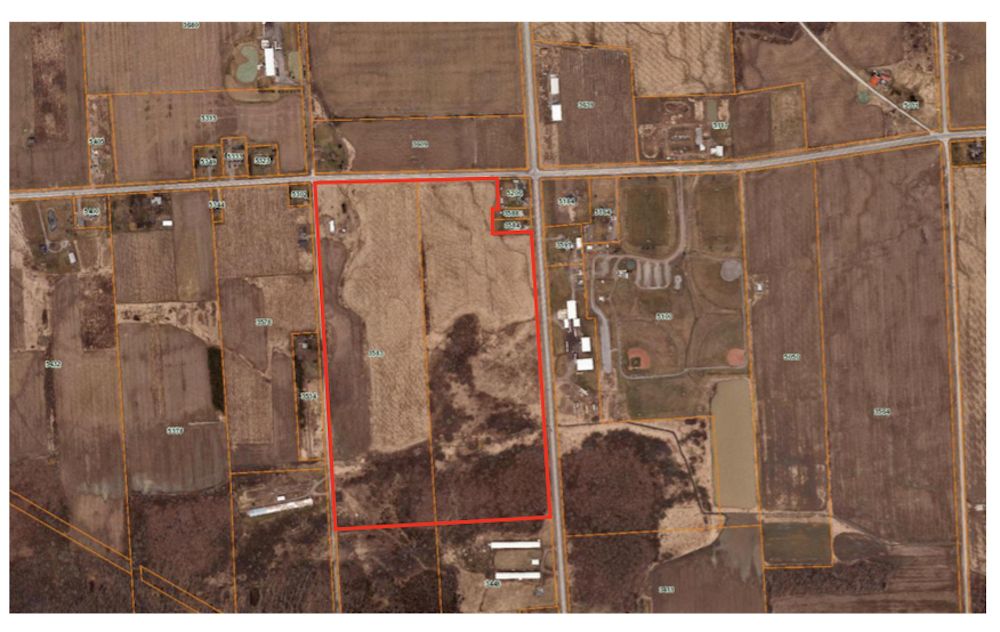 The 76-acre farm will have 40 acres planted to grapes. Since purchasing the property in 2019, Spassiani has been improving the soil. In 2020, 18 acres were under-drained and last spring, an additional 17 acres were under-drained in preparation for planting. In 2021, over four acres of grapes were planted with Boco Noir, Vidal, Pinot Noir, Sauvignon Rytos and Cabernet Franc grapes. In 2022, an additional 12 acres of Sorelli FPS and Cabert Volo FPS was planted. In 2023, an additional 17 acres will be planted. When Wines in Niagara visited the property last week, there was a crew preparing a portion of the vineyard for more of those plantings.
The 76-acre farm will have 40 acres planted to grapes. Since purchasing the property in 2019, Spassiani has been improving the soil. In 2020, 18 acres were under-drained and last spring, an additional 17 acres were under-drained in preparation for planting. In 2021, over four acres of grapes were planted with Boco Noir, Vidal, Pinot Noir, Sauvignon Rytos and Cabernet Franc grapes. In 2022, an additional 12 acres of Sorelli FPS and Cabert Volo FPS was planted. In 2023, an additional 17 acres will be planted. When Wines in Niagara visited the property last week, there was a crew preparing a portion of the vineyard for more of those plantings.
Spassiani says the initial wine production will be 2,000 cases with a five year-goal of 20,000 cases and ultimately a 40,000-case production. He says that we might see the first wine produced from estate grapes in 2023. “We plan on becoming a major player in the Niagara wine industry,” he says.
But wine is just one part of the grand vision. Spassiani sees Al Borgo as a destination, a “village” surrounded by grapes, with a community marketplace featuring local artisans, a café, a 160 sq. m tasting room and retail space and a central 250-person, dynamic multi use community space which will evolve and change as needed from a discovery centre, into an event space. Limited accommodations will be provided in 10, high-end 800-square-foot cabins fronting on Mountain Rd. and backing onto the wetland with pedestrian access to the winery complex where guests can stay up to a month. “A lot of people love the Lincoln area, and we want to bring them here to enjoy it,” Spassiani says.
Pearl Morissette proposed expansion
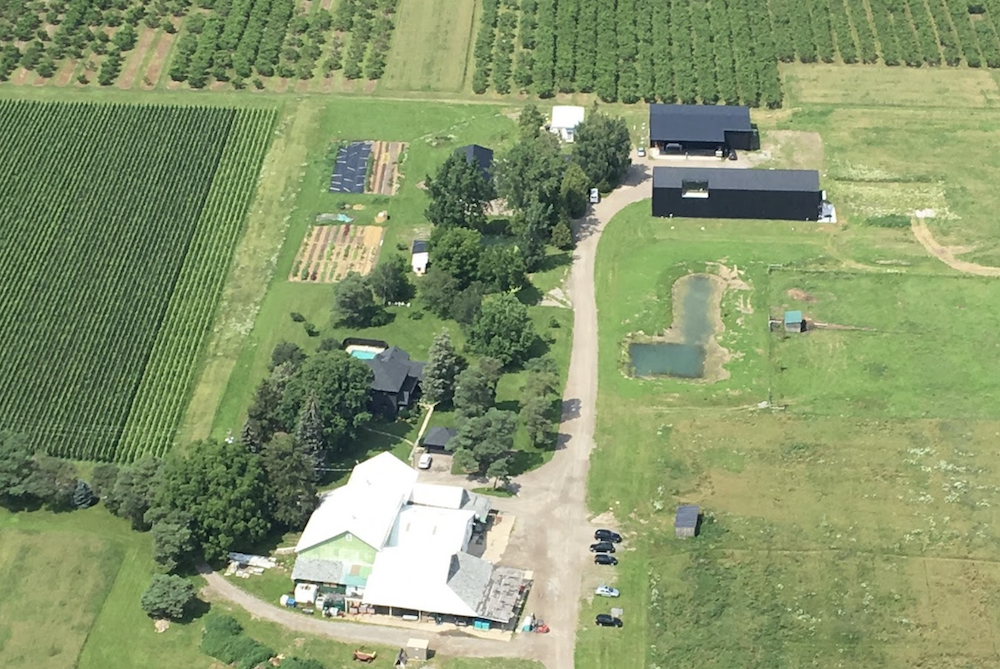
Pearl Morissette, a fixture on Jordan Road, is already an oasis of goodness with the addition of “The Restaurant,” one of the area’s finest and ranks at No. 14 on the list of Canada’s 100 Best Restaurants.
Now with nearly approved accommodations and permanence of an outdoor dining pavilion, the popular and unique operation is truly creating a village and contributing to the evolving agritourism industry in Lincoln.
As mentioned in the intro, there are just a couple of modifications left before Pearl proposal gets the final OK from the Town of Lincoln. The illustrations here are from the original submission.
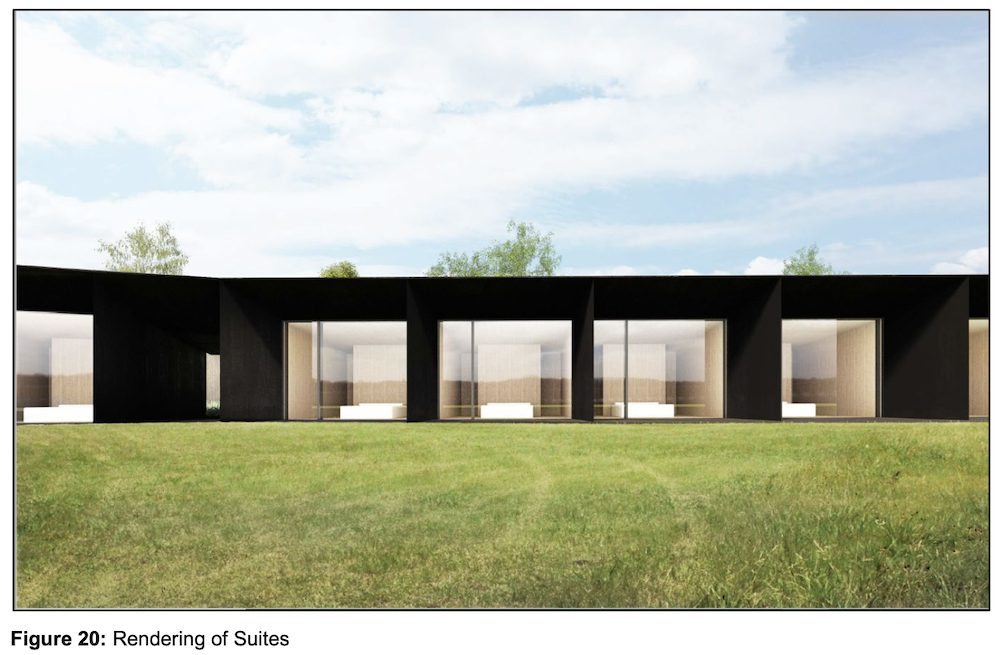
The Pearl Morissette approach is different from many other wineries. They do not have a retail outlet and as such no sales are conducted from the winery. They also do not cater to bus tours or host large gatherings or outdoor events. They take a sustainable approach to growing grapes, to the production of wine and the serving of food in the restaurant.
The recent COVID pandemic and the closure of all indoor dining facilities prompted Pearl Morissette to add an outdoor dining pavilion in July of 2020. The use of the outdoor dining pavilion was allowed as a temporary/seasonal use by Lincoln. The outdoor dining experience has “proven to be very successful and greatly enhanced the farm to table connection for the dining guests,” the application for upgrades says. As a result, PM now wishes to have a permanent outdoor dining pavilion.
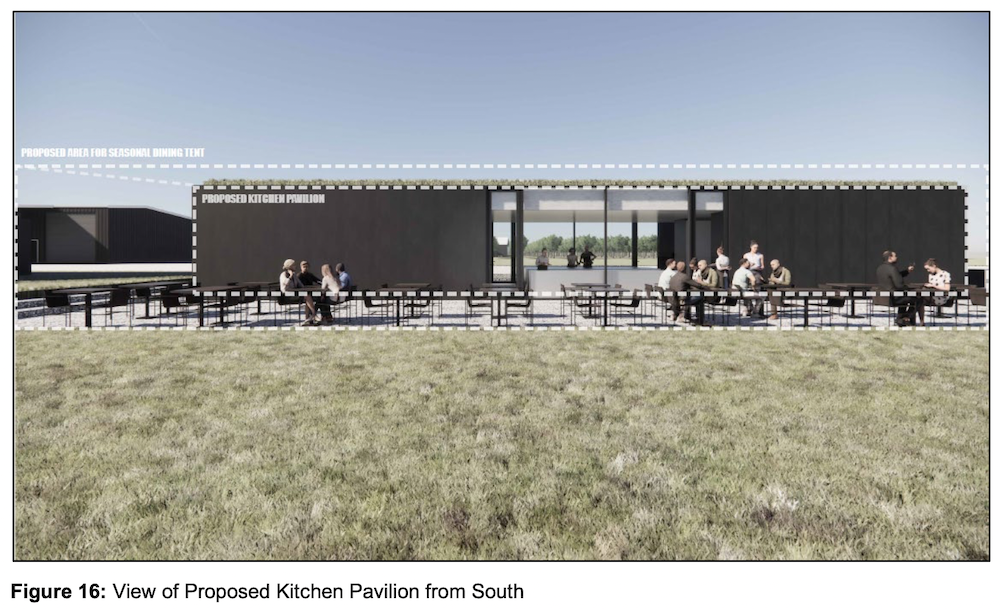
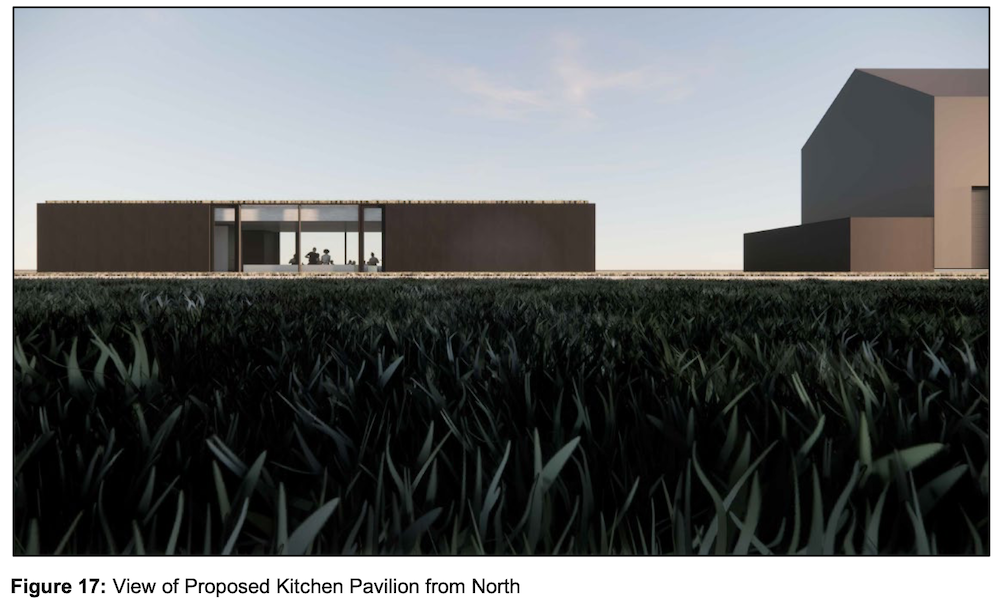
In addition to that, accommodation suites are also proposed to allow guests to stay overnight either as part of their visit to the restaurant or as general visitors to the area in need of overnight accommodations.
The new permanent outdoor dining pavilion will be situated to the east of the winery and existing restaurant building approximately where the temporary structure is currently located. The building will have an ultimate width of 6.7 m and a length of 24.4 m and will include washrooms, kitchen, and food preparation areas. This one storey building will be surrounded by a permanent patio area, immersing guests into the surrounding orchards and farm fields. This patio area will be open air, however, has the potential to be covered by temporary tent structures when needed.
The accommodation suites are proposed to be located along the Jordan Road frontage where two new access points will be connected to form a crescent shaped granular driveway (though, with revisions to the proposal, moved further back from the frontage). Two linear blocks each containing nine suites (capsules) are oriented in a North to South direction with large open glass walls facing the adjacent orchards. Each capsule will contain a small washroom, a sleeping area, and a covered outdoor patio/sitting area. Each block will consist of a one storey flat roofed building having a width of 9m and a length of 4.5m. Parking will be facing each capsule from the proposed driveway and extensive landscaping will be located along Jordan Road and both to the north and south of each block.







Comment here